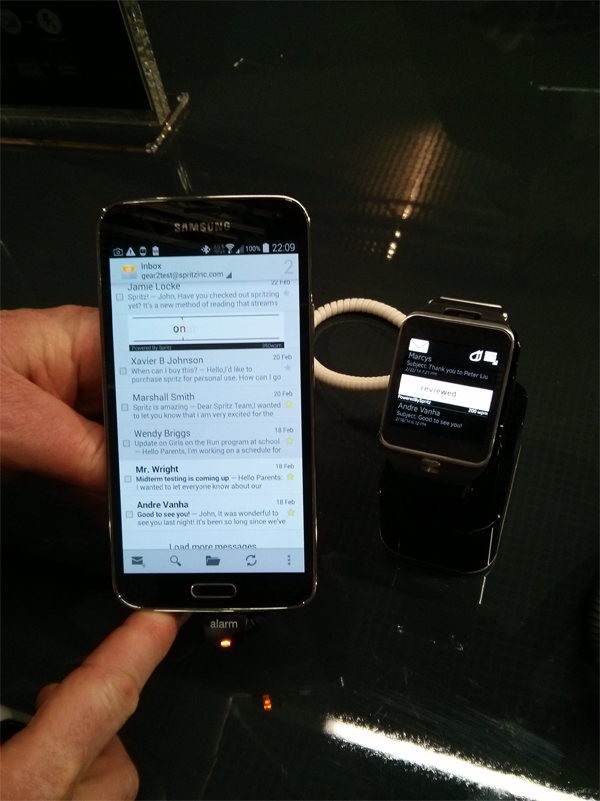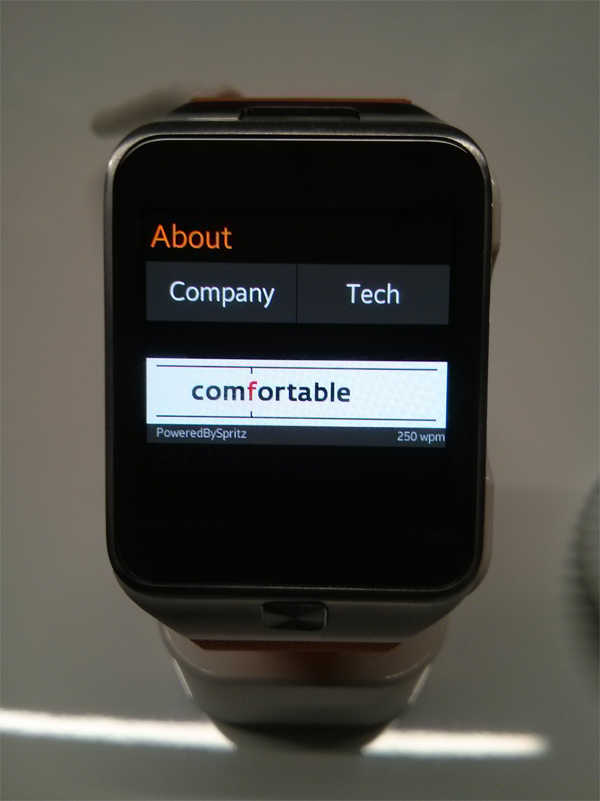Reading (think books) is pretty inefficient when you think about it. From left to right, down an entire page, and flipping to the next one over, and over, and over. Even with the advent of endless scrolling and smartphone page swiping, little has been added to reading efficiency since the Renaissance. You still have to move your eyes across a page to the next word, and the next, adding little progress to reading speed or comprehension. Now, imagine you could stop all of that. Imagine you could read while focusing on one point, the entire time. That’s exactly what Boston Startup Spritz is attempting to do with its state of the art reading technology.
Spritz has a goal of getting everyone to read a minimum of 500 words a minute with decent comprehension, about 50% faster than the average reader. Spritz is unique in that they don’t just want to build an app. They want to spread their technology to the world. To do this, they created the PoweredbySpritz program, which allows developers to use Spritz’ SDKs and APIs for Android, iOS and Java applications. Developers can sign up on their website, plead their case for membership in the program, and work on their own use of Spritz. Personal use licenses are even free.

Spritz has several new investors and even proof of product on the brand new Samsung Galaxy S5 and the Gear 2. If you need a demo, Spritz offers one right on their website. The science behind it is that during reading, 20% of the effort is used to process content while the rest is used to move your eyes to the next words. Spritz places one word in front of you (13 characters or less at a time) and replaces it with the next at a pace of your choice. 250 words, 300, 500, you name it, and Spritz can flash a novel to you at whatever speed you’re capable of comprehending. Check it out for yourself here.
It honestly reminds me of the film The Fifth Element, featuring actress Mila Jovovich as the “element,” a supreme being named Leeloo, with an intellectual capacity unseen before. In order to get her up to speed on the world’s history of events (she was created in a lab with an empty noggin), they flash historical images and text in front of her in a seizure-inducing-Clockwork Orange fashion. While much less traumatizing, Spritz is a bit similar. I’m just imagining getting through Ulysses in under week now.
While we can’t speak to the validity of claims on increased reading speeds or improved comprehension, it’s definitely an innovative idea, and the demo was exciting to try. The possible uses depicted for Spritz’ website are also pretty incredible. Small displays on smartwatches and even Google Glass could soon allow us to read as much as we like without eye strain. One word at at time is how we all started reading. Who knew it could come full circle in such an impressive and improved format?

